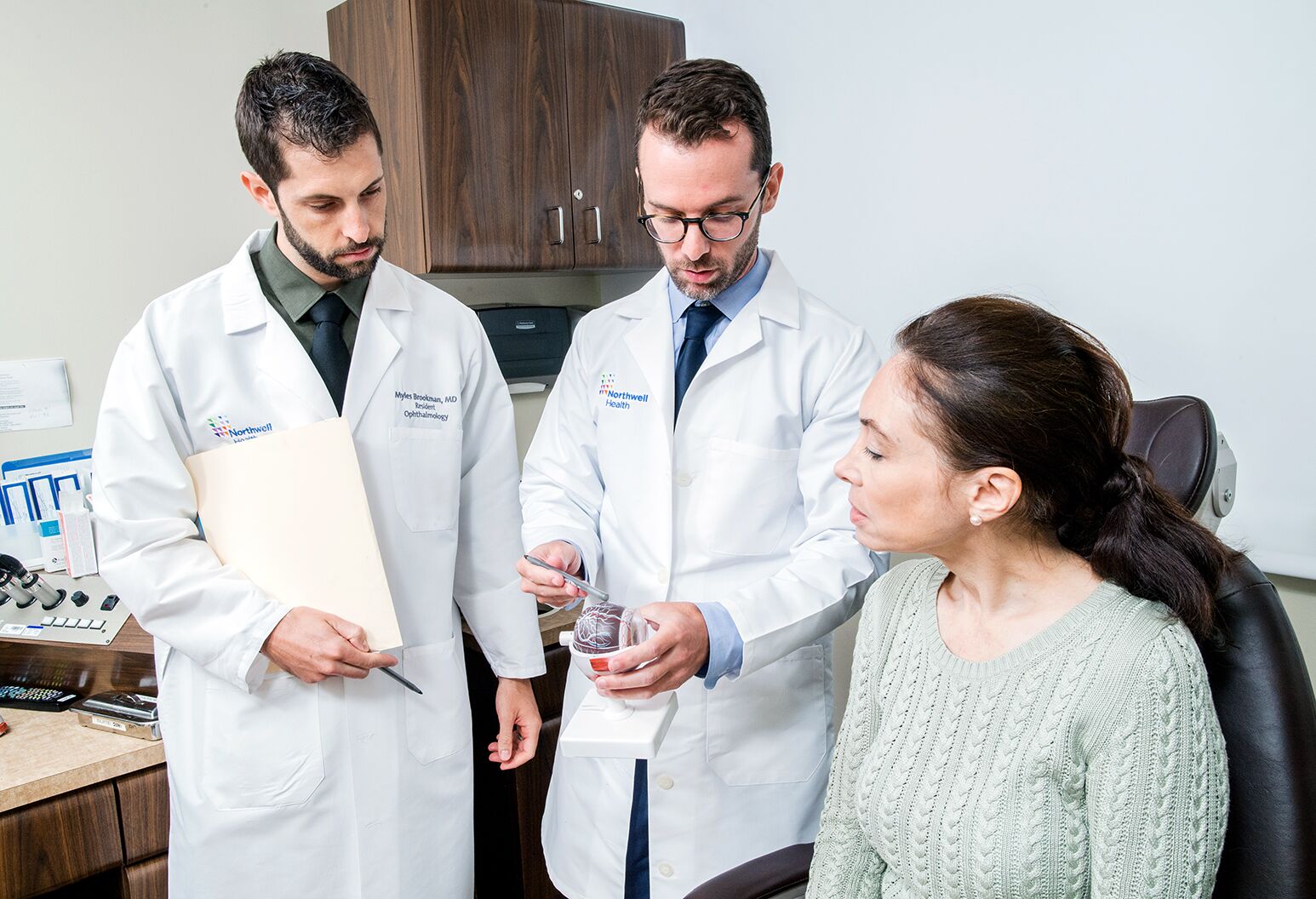General eye care

The importance of general eye care
Regular eye examinations are an important part of your overall health care to ensure good vision and healthy eyes. Eye exams should start in childhood, and adults should have a routine eye exam by age 40—or sooner if you have a history of vision problems or a family history of eye disease.
At your eye exam, your doctor will ask about your general health and family history. You will read an eye chart to assess how well you can see at various distances, and your doctor can give you a prescription for corrective lenses (eyeglasses or contact lenses) if necessary. Your doctor will also check your pupils, your eye pressure (to help diagnose glaucoma), the front parts of your eye (including the cornea, iris and lens) and the retina and optic nerve for signs of disease.
Our services
We offer a full array of general eye care services, including:
- Annual eye/vision examinations
- Prescriptions for glasses or contact lenses
- Assessment and monitoring of eye conditions and related health conditions
- Referrals to specialists as needed
Conditions we treat
We can diagnose and treat a wide range of eye conditions, including:
- Refractive issues (nearsightedness, farsightedness and astigmatism)
- Conjunctivitis (pink eye)
- Glaucoma
- Macular degeneration
- Cataracts
- Vision complications from diabetes or other chronic health conditions
- Dry eyes
- Floaters
- Injury or trauma to the eye
- Blepharitis and eyelid disorders (including styes)
Symptoms of eye conditions
If you have any of the following symptoms, be sure to get an eye examination as soon as possible. These symptoms can indicate an eye condition that may require treatment:
- Itching
- Burning
- Tearing
- Double vision
- Any other visual disturbance, including difficulty reading
Teaching & research
In addition to providing excellent clinical care, the physicians who are part of Northwell Health Eye Institute are dedicated to furthering the field of medicine in all disciplines, including ophthalmology. Many of our physicians regularly participate in the training of residents and fellows. They are actively engaged in research with the Feinstein Institutes for Medical Research and publish their findings in peer-reviewed journals. Our physicians are often investigators in clinical trials and can enroll patients who meet certain criteria to appropriate trials, which can help determine the best new treatments for a variety of conditions.
